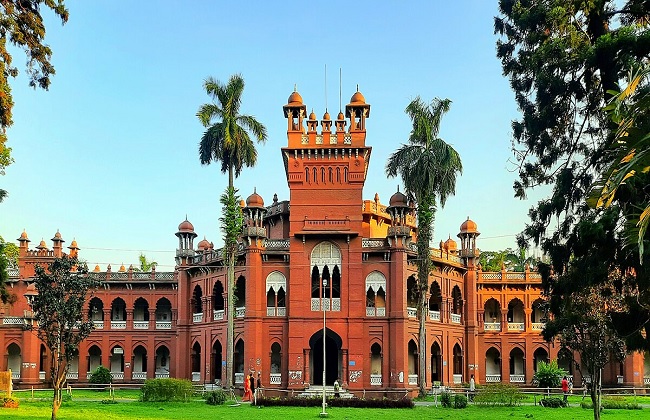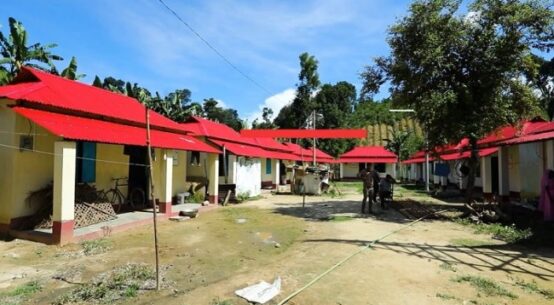
For many students from lower middle-income backgrounds in Bangladesh, reaching university is a significant milestone, but it also brings tough realities.
While some have family support to meet basic needs, others face a relentless struggle, as they balance academic ambitions with severe financial limitations.
Jhuton’s Story: The Price of University Life
Jhuton Talukdar, a second-year law student at Rajshahi University, is well aware of the financial pressures his family faces. His older brother is the family’s sole breadwinner, working tirelessly to keep them afloat.
“My brother’s income isn’t enough, so I tutor to support myself, but finding tutoring opportunities is not always easy,” he shared. “When I can’t find work, I’m stuck wondering how I’ll get by.”
Jhuton’s financial struggles are made worse by housing costs. He was unable to secure a place in a university dormitory, leaving him to rent a room nearby, which adds significantly to his expenses.
“Living costs are high, and I’m always worried about money,” he said. For Jhuton, these pressures are not just financial; they impact his ability to concentrate on studies and build a stable future.
Discrimination and Language Barriers
Ayon Mia, a master’s student in law at Dhaka University, points to another challenge for students like him from rural areas.
“There’s a noticeable bias,” he noted. “Students from more privileged backgrounds often receive more attention, while those of us from rural areas are left to figure things out on our own.”
For Ayon, language has also been a hurdle. Coming from a region with a distinct dialect, he felt hesitant to engage in conversations at first.
“You feel judged, and that affects your confidence,” he said. Alongside these challenges, finding funds for daily expenses remains a constant worry.
Coping with Mental Pressure
Raja Talukdar, studying management at Dhaka University, describes the strain that accompanies his financial limitations. “There’s always stress-wondering if I’ll manage, if my family can afford my expenses, if I’m taking too much from them,” he said.
Without access to career advice or mentors, Raja and others like him navigate university life largely on their own.
“My family is supportive, but they don’t have experience with higher education or career paths. Sometimes, I feel lost without guidance,” he admitted.
Going Hungry to Stay in School
One first-year Dhaka University student, who wishes to remain unnamed, shared a particularly harsh experience.
“I recently went two days without food. I had no money and had to borrow from a senior to get something to eat,” he said. Due to financial constraints, he often goes without essential books or study materials, placing him at a disadvantage.
Professor Dr. Mehjabin Haque, Director of the Student Guidance and Counseling Office of Dhaka University, said that part-time job opportunities are available to help students with financial problems. Students can work for short periods in the university library, registrar’s office, and halls with their convenience.
Besides, the Student Promotion and Support Unit, under the Proctor’s office, provides job opportunities both within the university and in various offices and industries outside. They also offer training to help students secure jobs later and gain practical experience, he added.
Moreover, to alleviate financial issues, the department, alumni association and other sources arrange scholarships.
The Student Guidance and Counseling Office also provides psychotherapy and advice on any issues to help students, said Professor Mehjabin.

